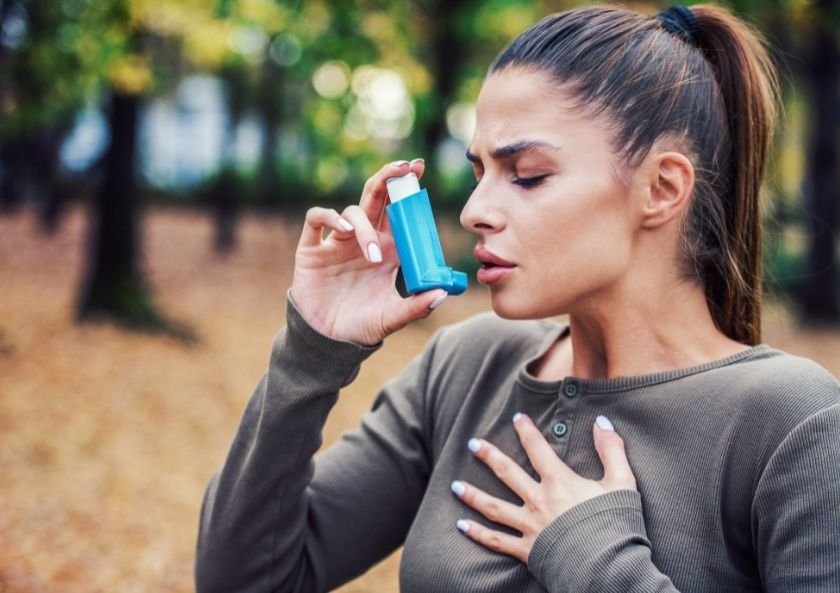What are the symptoms of allergic asthma?
Allergic asthma is a common disease in children. Families wonder about symptoms of allergic asthma, especially having child with frequent cough in winters. Symptoms of allergic asthma in children are frequent cough, respiratory disorder and shortness of breath.
Apart from that some different symptoms can be allergic asthma symptoms. We aimed to inform you about symptoms of allergic asthma in this article.
What are the most important symptoms of allergic asthma?
The most frequent symptoms of allergic asthma are frequent cough, shortness of breath and chest pain. These three symptoms are the most frequent ones, but there are some other symptoms of asthma.
What can be symptoms?
· Frequent cough
· Shortness of breath
· Chest pain
· Wheezing in lung
· Flu affecting lung and cough after flu
· Cough and wheezing in lung after playing
· Shortness of breath, wheezing in lung and cough after sport and exercise
· Cough due to flu takes longer than 2 weeks
· To catch pneumonia 2 or more can be symptoms of allergic asthma.
Only cough can be symptom of allergic asthma
Families generally don’t accept that their children have allergic asthma. They think their children don’t have respiratory disorder, they only cough. But they must know that a child coughing frequently can have allergic asthma.
Allergic asthma cough has typical features
Cough due to allergic asthma has some typical features. Allergic asthma cough starts 1-2 hours after sleeping or happens towards morning or cough causes to wake up in the night. For this reason if your child’s cough;
· Wakes your child up,
· Is not shortly after sleeping but 1-2 hours after sleeping,
· Is towards morning or after waking up in the morning,
· Is after playing or sport or climbing up stairs,
This cough can be allergic asthma cough.
Symptoms of allergic asthma are repetitive
Symptoms are generally repetitive. If a child coughs only for 1 or 2 weeks, then she can’t have allergic asthma. But if child coughs frequently and it repeats, she can have allergic asthma.
Symptoms might have seasonal features
If symptom happens in spring or after house cleaning, families should suspect of allergic asthma. Because the most important reasons of allergic asthma are house dust mite (dermatophagoides farinae) and pollen. So allergic asthma attached to pollen occurs in spring.
Symptoms occur with starting the school and beginning of winter
With the start of schools influenza becomes frequent. Influenza is the most common reason triggering allergic asthma. Especially in the kindergardens, influenza is very frequent and after influenza cough starts.
Children with allergic asthma are influenced by smell
Lungs of children with allergic asthma are very sensitive to smell. That’s because bronchus of children with asthma are damaged due to inflammation and becomes sensitive. After this sensitivity, they become sensitive to cigarette smoke, perfume, cleaning materials and detergent smell.
Children with allergic asthma can have eczema and allergic rhinitis
Children with allergic asthma are prone to other allergic diseases. Especially allergic rhinitis and eczema are frequent in children with allergic asthma.
Parents or relatives of children with allergic asthma are most likely to have allergy
Allergic asthma is a genetic disease. If a child’s parents, sister or brother and relatives have allergic asthma, allergic rhinitis or eczema, or they have symptoms of allergic asthma, then the child must be examined for allergic asthma.
As a result;
· Allergic asthma’s major symptoms are frequent cough, respiratory disorder and chest pain.
· Allergic asthma’s only symptom can be cough.
· Allergic asthma cough starts 1-2 hours after sleeping or happens towards morning or cough causes to wake up in the night.
· Allergic asthma’s symptoms are repetitive.
· Symptoms might have seasonal features.
· Children with allergic asthma are easily influenced by smell.
· Children with allergic asthma can have eczema and allergic rhinitis.
· Parents or relatives of children with allergic asthma are likely to have allergy.



